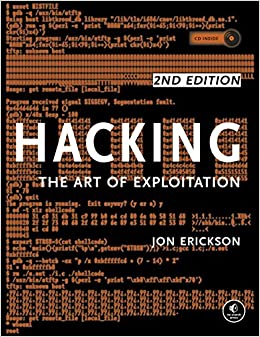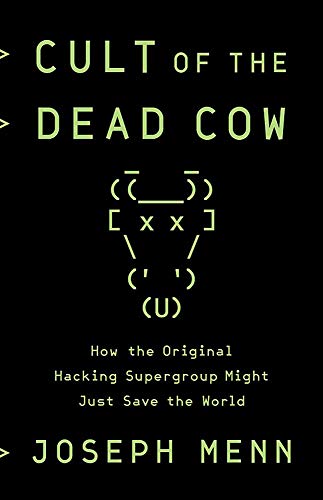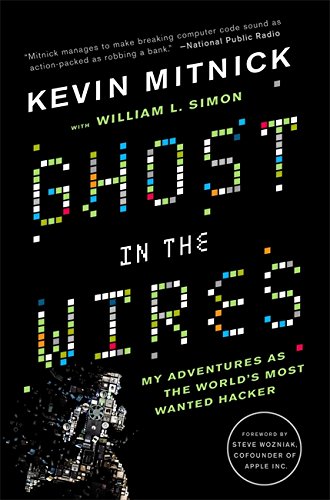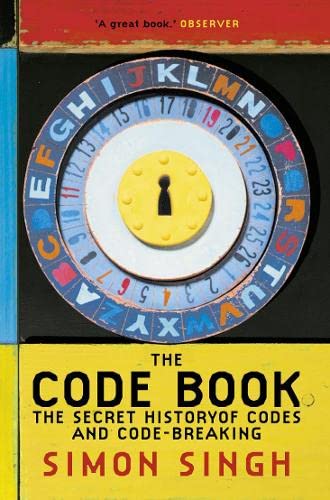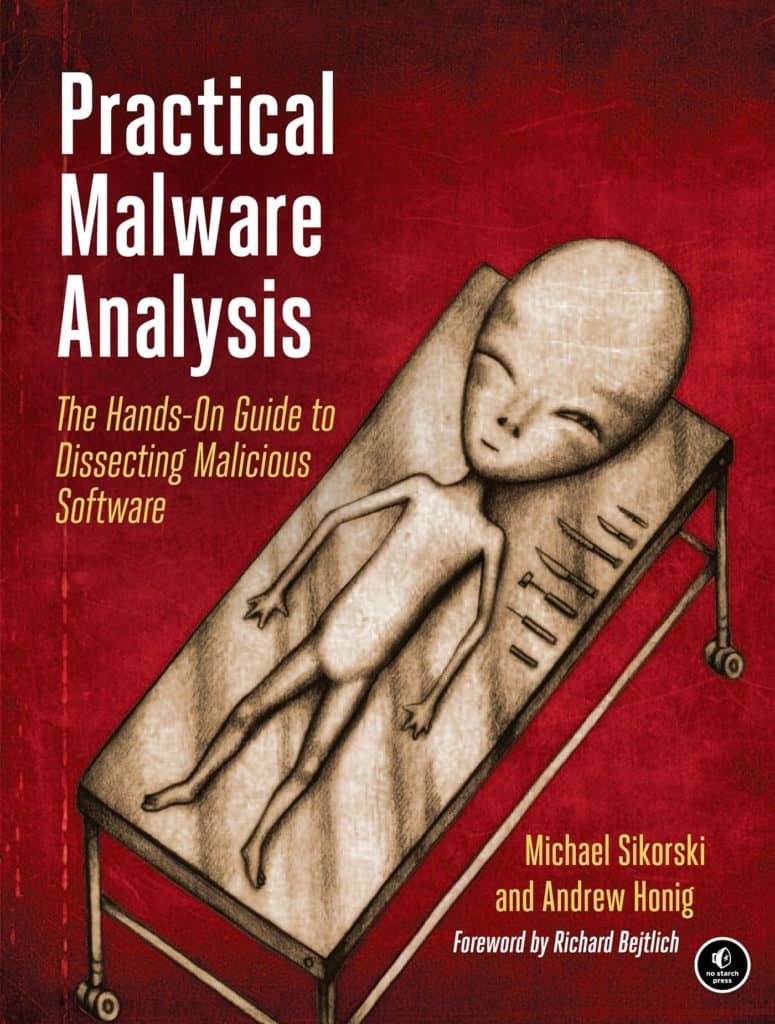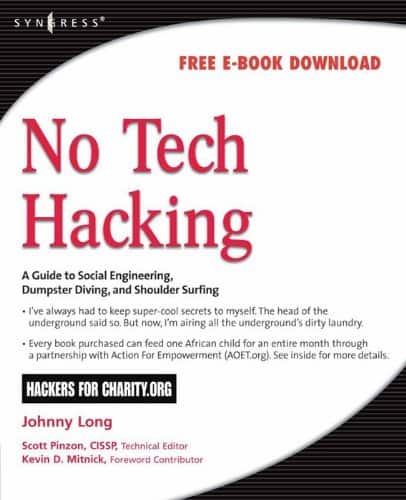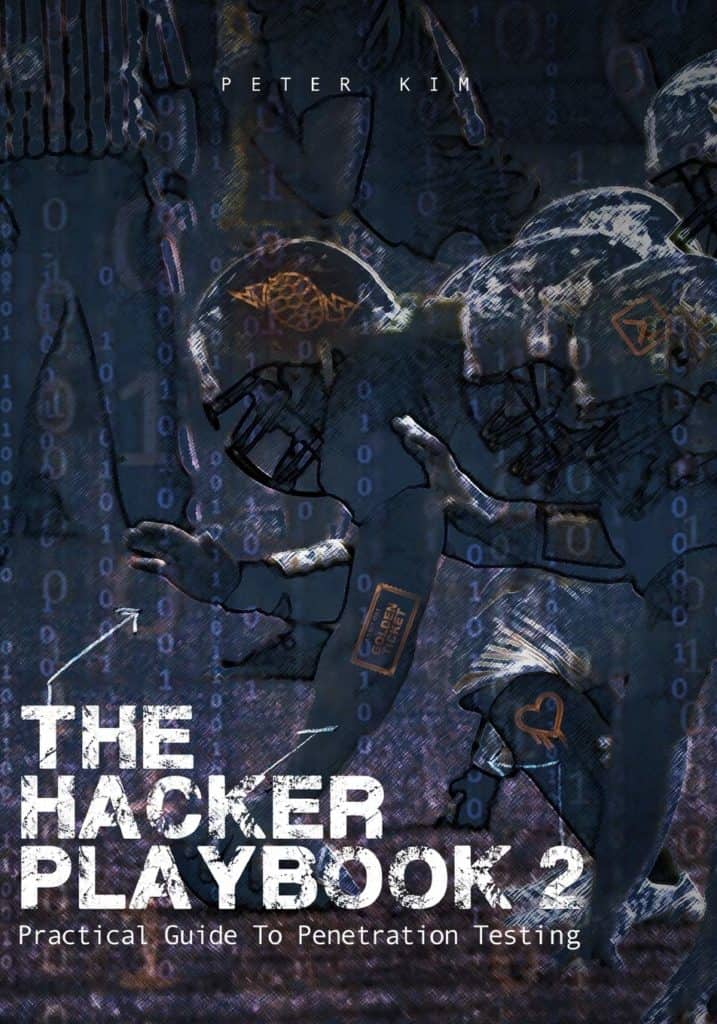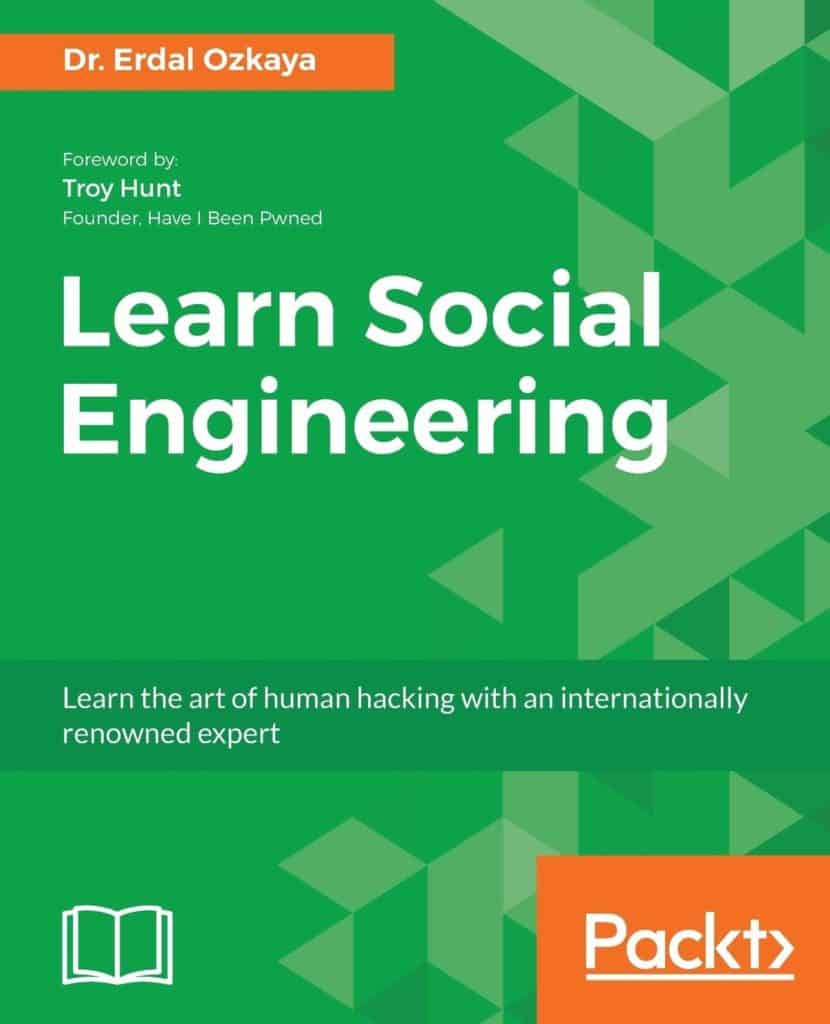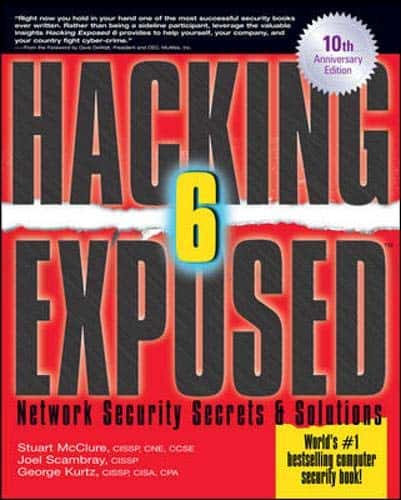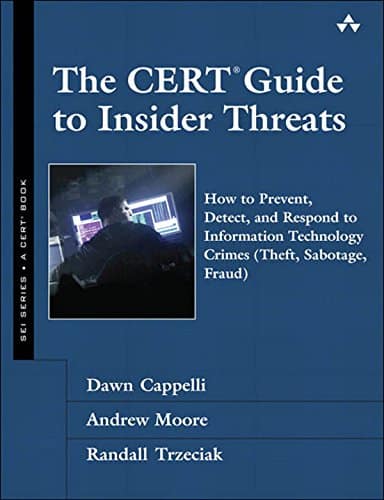11 Cyber Security Books For Beginners: Mastering the Basics
A comprehensive list of best Cyber Security Books that helps you clear your basic Fundamentals of Cybersecurity
- Blog
- 7 Mins Read
- Updated on 25th July 2023.
To begin my journey in cybersecurity, I dug into numerous books that promise to be the ultimate starting point for aspiring professionals in this field.
While some truly enriched my knowledge with new discoveries, others fell short of providing the essential insights crucial for beginners.
So if you don’t want to waste your money and time, then keep reading.
In this article I have listed the top 11 Best Cyber Security Books For Beginners that will give you complete insights about the field of Cybersecurity and help you understand the basic fundamentals as a beginner.

Table of Contents
List of 11 Best Cyber Security Books For Beginners
1. Cybersecurity for Dummies
Author: Joseph Steinberg
Rating: 4.5/5
On our list of books for cyber security for beginners, the first book I will recommend is The Art of Invisibility. The book is written by the famous author Mr. Kevin Mitnick. He is an American computer security consultant, author, and convicted hacker.
The book is based on true-life stories where you will know the dark secrets of how your data is getting shared by hackers on the dark web without your knowledge.
In his book, he has shared deep insight into how you can hide yourself on the internet from hackers to keep yourself and your family safe.
Moreover, you will learn about topics like protecting your password from hackers and intelligent Wi-Fi usage. The book also covers how exactly vulnerabilities can be exploited and the best countermeasures.
So if you want to skill yourself with the knowledge of how to secure yourself from hackers on the web, this book is perfect for you.
Moreover, the author himself was the world’s most famous and formerly the US government’s most wanted computer hacker. So no one is the more authorized person than him to give you insights about how the thing works.
2. Hacking: The Art of Exploitation
Next, the book I have on my list is Hacking: The Art of Exploitation 2nd Edition. The author of this book is Jon Erickson, who has a computer science background and work experience as a cryptologist and security specialist in Northern California.
The book focuses more on Networking fundaments, where you will learn about the different types of ports, the internet, how TCP and UDP work, and much more.
Moreover, the author also focused on complete Linux programming and debugging environment, the basics of programming computers using C language, and how you can use them in shell scripting.
The best part I like about the book is the in-depth information about networking, where the author covers topics like how to redirect the network traffic, conceal open ports, and hijack TCP connections and that in depth.
Additionally, the book also gives you a brief about how to crack encrypted wireless traffic using the FMS attack and speed up brute-force attacks using a password probability matrix.
The book is available in Kindle edition as well as a paperback edition is also available on Amazon.
3. Cult of the Dead Cow
The Cult of the Dead Cow book refers to the history of cybersecurity, which includes one of the oldest and most revered hacking groups in the United States. The author of this book is Joseph Menn.
He is the longest-serving and most respected mainstream Journalist on Cyber Security.
When it comes to the topics this book covers then there, it slightly disappoints me as most of the chapters only cover the story part, where the author explains the old era of cybersecurity and how technology works at that time.
The book merely focuses on the cDc history and different types of hacking held back in the past. So if you love to know about the history of cybersecurity and famous cyber hacks, go with this book.
I will not recommend buying it if your only goal is to know about the latest technology. However, if you are someone who is much interested in the history of cyber security, then this is the perfect book for you.
4. Ghost In The Wires
Kevin Mitnick’s memoir of his computer hacking days is a fascinating look into the mind of a man who took advantage of other people’s mistakes to get what he wanted.
From his time as a young boy, when he was first introduced to computers, through the development of his skills and eventually being caught by law enforcement agencies and spending time in prison, Mitnick paints an intimate portrait of not just himself but also the history of computers and technology as a whole.
The book covers the topic of different vulnerabilities and how the author used social engineering to exploit them. The book is well-written and mainly focused on beginners who want to know more about computers and hacking.
Overall, I enjoyed the book and the tips and tricks of social engineering shared in this book. If you are a complete beginner and want to know more in-depth about social engineering and how it works, this book will be a perfect choice for you.
5. The Code Book
The Code Book is all about cryptography, where the author Simon Singh covers the clear mathematical, linguistic, and technological demonstrations of many of the codes.
This book is perfect for cyber security people looking to know more about cryptography and its hidden puzzles. Moreover, the book is written very simply, making it easy to read and understandable.
The book covers all the hidden history of cryptography and some of the famous code breakers like Alan Turing and John Nash, who could crack codes that no one else could figure out at the time.
Moreover, The Code Book gives you deep insight into the history of encryption and decryption and how to use it in real-time. So if you want to start your cyber security career as a Cryptographer, this book is undoubtedly a gold mine for you.
6. Practical Malware Analysis
The book Practical Malware Analysis is a perfect choice for people who are already aware of malware and looking to know more about the topic. This book is ideal for those seeking a career as a Malware Analyst.
Michael Sikorski and Andrew Honig are the authors of the Practical Malware Analysis book. The book gives you in-depth insights into the malware, types of malware, and its countermeasures.
The author well structured the book where you can learn how to set up a safe virtual environment to analyze malware along with their signatures and host-based indicators.
You will also learn how to overcome malware tricks like obfuscation, anti-disassembly, anti-debugging, and anti-virtual machine techniques.
The tools the authors cover in this book are IDA Pro, OllyDbg, and WinDbg. Still, the best part I like the most is that the author has also covered how to Analyze exceptional cases of malware with shellcode, C++, and 64-bit code, which is well-written and easy to understand.
However, you can’t deny that the book is outdated. Nowadays, technology is much more advanced, and hackers developed many different types of malware, which are not mentioned here.
Yet I recommend the book to understand the core concept of malware and its components.
7. No Tech Hacking
If you want to master social engineering and the different ways of social engineering, then the book you must go with is No Tech Hacking: A Guide to Social Engineering, Dumpster Diving, and Shoulder Surfing.
The book is written by Kevin D. Mitnick & Johnny Long, who are well know personalities in the field of cyber security and have worked for the US government and tech companies like Microsoft.
The topic covered mainly concerns how to do social engineering and get information about an organization.
Some of the key points this book covers of social engineering are Dumpster Diving, Tailgating, Shoulder Surfing, P2P Hacking, and many more.
However, most of the hacks the hacker shared in this book are basic only, yet if you are a beginner and are unaware of the term social engineering, then this book will surely help you to understand the concept.
Moreover, if you are aware of the basic terms of social engineering, then I recommend you go with another book, Learn Social Engineering.
8. The Hacker Playbook 2
If you are looking to start your career as an Ethical hacker and want to master the concept of different types of networks, pivoting through security controls, privilege escalation, and evading antivirus software, then The Hacker Playbook 2 is a perfect book to go with.
The book is written by security professionals and CEO of Secure Planet Stuart McClure, George Kurtz & Joel Scambraygs. The book gives you a complete insight into the mindset of an ethical hacker and their thinking perspective.
When it comes to the topic, as I said, you will get in-detail information about networking privilege escalation, reconnaissance, scanning, and much more.
Additionally, you will get information about penetration testing, where the author explains the various method of finding exploit and how to find a vulnerability in an application.
The book is written in simple English, which inter-level English speakers can quickly grab, and the topic is also well explained and easy to understand.
9. Learn Social Engineering
Learn Social Engineering is one of my favorite books on this list. The book focuses on the life of hackers rather than hacking itself. The book is written by Christopher Hadnagy and focuses on the psychology behind hacking.
Even those who don’t understand the intricacies of coding and hacking will find this one of the most thought-provoking books they have ever read.
The book covers social engineering threats and attacks, information gathering, and more. Moreover, it gives you a clear picture of how people are trapped by hackers by baiting, phishing, and spear phishing, to pretexting and scareware.
However, the only drawback I found with this is that they are using Kali OS, and if you are unaware of the Kali operating system, then it might take some time to understand their terms.
Yet, if you want to get into security professionals, security analysts, and penetration testers’ jobs, you can go with this book.
10. Hacking Exposed Sixth Edition
Hacking Exposed Sixth Edition is a comprehensive, in-depth look at hacking. The author of this book is Jeff Moss, also the founder of the famous Black Hat Security Conference. Mr. Kip Boyle, CISO and PEMCO Mutual Insurance Company; and Bill Loesch, a CTO in Guard ID Systems.
The book focuses on hacking hardware, including lock bumping, access card cloning, RFID hacks, USB U3 exploits, and Bluetooth device hijacking.
Moreover, the book also covers topics like updated Windows attacks and countermeasures. However, the topic is based on old Microsoft Vista and Server 2008 vulnerabilities and Metasploit exploits, which are now outdated.
Yet you can get many more benefits by reading this book, like the book covers DoS, man-in-the-middle, DNS poisoning, and buffer overflow attacks.
Additionally, they covered VPN and VoIP exploits, including Google and TFTP tricks, SIP flooding, and IPsec hacking, giving you a clear picture of how the hackers make these attacks.
One of the most valuable aspects of this book is its ability to expose readers to concepts and techniques they may not have considered before.
11. The CERT Guide to Insider Threat
Finally, last, on my list of best cybersecurity books, I have listed The CERT Guide to Insider Threats, written by one of the most skilled cybersecurity experts Dawn Cappelli who is also a Technical Manager of the CERT Insider Threat Center and the Enterprise Threat and Vulnerability Management Team at Carnegie Mellon University’s Software Engineering Institute (SEI)
The book is purely focused on types of malicious insider attacks. By reading this book, I came to know more about the topic like IT sabotage, intellectual property theft, and fraud.
The book also conveys the big picture of the insider threat problem of an organization, where you can understand the complex interactions and unintended consequences of existing policies, practices, technology, insider mindsets, and organizational culture.
The author not only gives a deep insight into the insider threat but also shares the countermeasures, like what actions are recommended for the entire organization, from executive management and board members to IT, data owners, HR, and legal departments, if such inside threat detected.
Overall, the book is perfect and well-written. However, I will not recommend this book if you are entirely new to this field and some topics need an intermediate level of cybersecurity information.
Conclusion
So before I say goodbye to you, let me briefly recap what we have discussed in this article. So, the first thing we discuss about different types of books and the topic you will find inside the book.
To make it easier for you, let me categorize all listed books in a sequence so that you will quickly pick one of them per your need. So, if you are entirely new to cyber security and don’t know anything about the niche, go with a book like Hacking: The Art of Exploitation or Ghost In The Wires.
However, if you are more interested in Ethical hacking and want to read more about how things work in this field, then books like No Tech Hacking, The Hacker Playbook 2, and Learn Social Engineering are the perfect choices for you.
Moreover, if you are interested in the history of Cybersecurity and the hidden dark world of the internet, then books like The Art of Invisibility and Cult of the Dead Cow are perfect for you.
Also, you can’t ignore books like Practical Malware Analysis and The CERT Guide to Insider Threat to learn more in-depth about the field.
I hope this article will help you to get your best book to start with cyber security. So which book you are going to buy? Let me know in the comment section.
If you like the post, then don’t forget to show some love by sharing it with your friends and loved ones.

